You might be looking for new ERP software to upgrade your existing system or maybe searching for your very first ERP platform to help your business gain many competencies that these platforms can provide. Whatever your reason is, it’s very likely that you, along with the many ERP users and IT experts across the world, are quite aware of two important things when using ERP tools. First, they have proven capabilities to help businesses to achieve enhanced operational efficiencies and other benefits. Second, despite being used for decades now, they’re still very complex to completely understand and use.
Since ERP tools are deployed to collectively address all or the majority of a company’s operations and key concerns, it is, by essence, a complicated application. Which is why businesses of all sizes can only avoid these common mistakes in ERP implementation and application by carefully following a set of best practices as well as other similarly important aspects like business process reengineering and change management. And there’s no other way or short-cut approach to do so.
We have prepared a review of the best 15 ERP systems for your business to help you out in untangling that unwavering web of ERP complexity and better prepare you in choosing the correct ERP solution for your business.

What are the 15 best ERP tools for your business?
Aside from taking great consideration of its inherent complexity, the selection process is another is also a critical factor for ERP buyers because selecting the wrong solution can only lead to failure, no matter how hard vendors and buyers try to make it work. Also, as opposed to other types of software (such as CRM), ERP is a significant investment even for any company. And unlike other systems, it is not easy for companies to switch from one ERP solution to another without causing major business disruptions, as these famous ERP implementation mistakes have shown. There are also a host of reasons why businesses implement an ERP. Some of the top reasons are to enhance business performance, to prepare the business for expansion, for better customer service, and to simplify the work of employees (Panorama Consulting)

The top reasons for implementing an ERP system. (Source: Panorama Consulting)
The 15 best ERP tools included in this article provide almost similar features and benefits, but each has its own set of unique offerings as well as target users. Since ERP solutions cover the entire spectrum of activities and bind together all processes across the organization, it helps a lot to know current ERP industry statistics and trends and why ERP is important to your company before making that decision to buy a new ERP tool or upgrade your existing platform.
15 Best ERP Applications of 2026
1. NetSuite ERP

Netsuite ERP easily tops our list of the best 15 ERP systems for your business because of its comprehensive suite that handles ERP, CRM, financials, and e-commerce, among others. It is currently used by over 40,000 organizations spanning a broad range of industries and businesses. The scalable cloud ERP solution automates and streamlines front- and back-office processes including financial management, revenue management, fixed assets, order management, billing, and inventory management. It provides the entire organization from top management decision-makers to teams and staff a customizable view of key performance indicators, operations status, and reports.
If you’d like to see the software in action the vendor provides a great free demo showcasing all the key features. You can easily sign up for NetSuite ERP free demo.
What is unique about NetSuite ERP?
- It’s an Oracle product. When it’s from the second-largest software maker in the world that has been in the business of computing for the past 40 years, you can be assured of its quality and proven customer support. Likewise, a huge customer base attests to the product’s performance and usability.
- Complete visibility of your supply chain. You get a complete set of inventory management, manufacturing, and purchasing features for a more efficient supply chain that delivers an end-to-end, procure-to-pay process. These are on top of having a real-time view of key supplier, inventory, and procurement indicators.
- Fast track quote-to-quote process. The platform’s order and billing management module integrates your sales, finance, and fulfillment operations to eliminate manual bottlenecks and to speed up the order-to-cash process by creating a seamless flow from sales quote to approved order, successful order to fulfillment, and on-time invoicing to payment.
- Streamlined fulfillment flow. Customer, order, invoice, and shipping information are centralized to help reduce fulfillment errors and avoid costs of reconciling shipping information. It integrates with top shipping carriers to help you manage your shipping needs, such as updated shipping rates and order processing costs, all within the platform.
- Optimized recurring revenue streams. The platform integrates front- and back-office workflow for a subscription-based revenue model, providing you a complete, up-to-date view of customer information and interactions in order to retain customers better and ensure continuous growth.
- Accurate revenue recognition. NetSuite’s revenue recognition management allows you to calculate and create accurate financial statements for both product and service sales transactions occurring either at a single point in time or across various milestones.
Detailed NetSuite ERP Review
2. Wrike

Wrike is a cloud-based platform that makes it simpler for people to collaborate, regardless of whether they are in the same room or in different locations. This service allows for the planning, prioritizing, and tracking of tasks and their respective statuses in real time. As well, it allows for real-time conversations with your respective teams.
Wrike provides you with a three-pane view of projects. You can navigate the various levels and work on more manageable tasks thanks to the project hierarchy displayed on the left panel. The tasks for the project are in the middle pane, while the details are on the right. It is simple to monitor the progress made by collaborators when using this view. You can also draw something to their attention by using the @mention.
What is unique about Wrike?
- 3-Panel Project View Displays Vital Data. This displays all project tasks. The left panel lets you switch between projects or work on small tasks. The middle pane shows tasks for a project, and the right shows task details.
- Tags and folders allow project data sharing. Organize data by tasks, projects, or other categories using tags and folders. Name folders by data organization and share them with collaborators.
- Teamwork with Activity Stream and @mention. Track big and small tasks and collaborator performance. Call collaborators’ attention to issues using @mention.
- Task Tracker. This review shows simple project task breakdowns. It helps find problems in a project and prioritize tasks using the timeline. It lets you explain tasks, attach files, show pictures or tables, and link them.
- Powerful analytics make it easy to report. Create reports for executives and other stakeholders. Global Reports show all of the tasks in each folder, plus performance charts.
- Powerful Data Migration Integrations. Email integration works to let you create, assign, and change documents from your email account. Use Google Drive to share files and collaborate on projects. Wrike works well with countless B2B apps.
- Enterprise-Grade User Audit Reports. This improves accountability. Admins track what people and groups are doing to prevent data breaches and other issues.
Detailed Wrike Review
3. Acumatica

Acumatica is a cloud-based enterprise resource planning (ERP) software that provides a robust set of business management tools for small, growing, and mid-market size companies. It enables companies to have the efficiency and flexibility to continue their operations amidst the shifting business landscape. Acumatica provides the essential infrastructure for organizations to thrive in the digital economy, including teams that do mobile and telework setup. This platform sustains rapid growth and scales with the expansion of organizations.
The Acumatica platform has a robust set of solutions that makes it possible to effectively manage multi-entity intercompany accounting, financial management, CRM, project accounting, and other business processes. Deployment is flexible as it can be installed on-premise, or hosted on either a public or private cloud. Acumatica seamlessly integrates with business tools such as Salesforce, ProCore, HubSpot, and Shopify.
What is unique about Acumatica?
- Consumption-based licensing. The modern pay-as-you-go licensing model of Acumatica ensures that the system can be adjusted based on your current needs. With Acumatica, there are no hidden fees.
- Industry-specific solutions. The tools of the Acumatica platform can be easily configured to meet the needs of your growing company. Solutions for construction management, manufacturing management, and other industries can be customized to support operations.
- Agile platform. The Acumatica infrastructure is always ready to meet the ever-evolving needs of fast-growing organizations. It easily integrates with tools and systems that you already use, while the cross-module workflows empower collaboration.
Detailed Acumatica Review
4. Rossum

Another intuitive cloud-based platform, Rossum takes charge of collecting all documents relevant to invoice processing, purchase orders, claims, etc. All documents gathered are organized in a single source of curated feed where you can filter and sort the documents. This process also handles duplicates, merged docs, as well as unnecessary data, including spam.
Rossum seamlessly integrates with document management systems, document scanners, and even email inboxes to create a two-way intelligent inbox for a more efficient document collection, processing, and management. As an AI-powered software solution, Rossum is equipped with a unique data capture technology that replicates how the human mind identifies, captures, and extracts necessary information from documents. Furthermore, Rossum’s unique AI technology is also self-learning, which means it can adapt to changes in document processing based on the requirements of your business.
What is unique about Rossum?
- Out-of-the-box AI. Rossum’s AI technology is designed to recognize hundreds of thousands of invoices and invoice templates. This not only makes data extraction faster, it also adds to the accuracy of data capture regardless of the volume of the documents that need to be processed.
- Self-learning technology. Rossum does not only take pride in its efficiency and precision, but also in its ability to be trained. This platform’s AI is self-learning, which means it adapts to the changes in the standards and requirements of a company.
- Virtually zero human intervention workflow. Rossum’s automation capabilities significantly reduce the need for manual intervention not only in document processing but also in communication. The system automatically sends updates and even inquiries to your business partners regarding the status of the documents being processed.
Detailed Rossum Review
5. Method:CRM
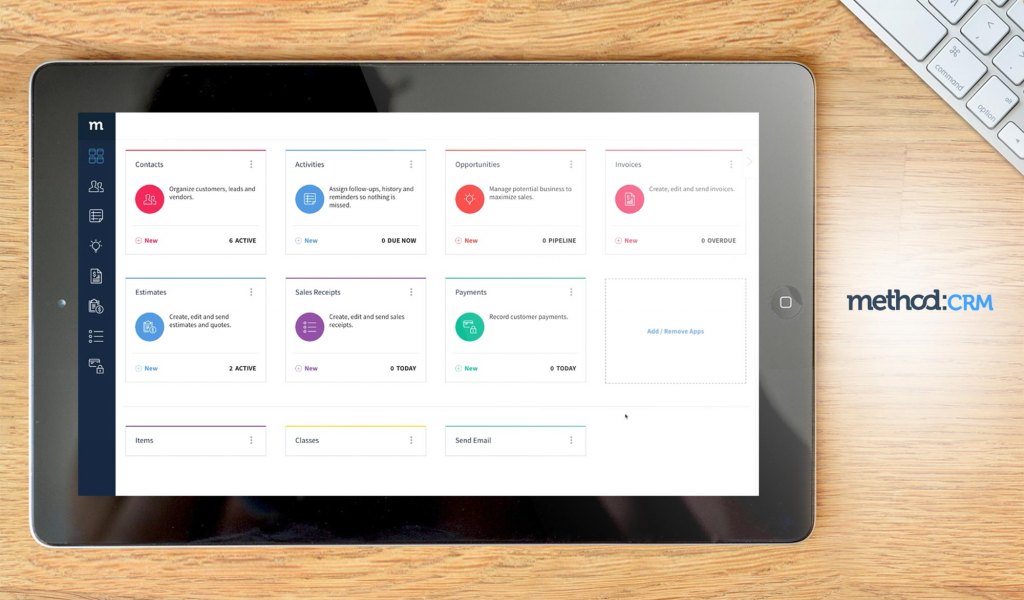
Method:CRM is a unique platform designed to help small businesses streamline sales processes. The software is comprised of features for lead management, opportunity tracking, and sales activity monitoring. What makes it stand out, however, is its ability to seamlessly sync with QuickBooks accounts. With this, it is easier to consolidate transactions and keep tabs on customer activity in one place.
Users will find it easy to delegate tasks, deliver consistent customer experiences, and process transactions. The system is also able to handle work order management and automated scheduling for your convenience. Method:CRM is scalable and offers affordable pricing plans which are ideal for small businesses.
What is unique about Method:CRM?
- Easy-to-use platform. Method:CRM is user-friendly and highly configurable so users can easily implement it and tailor it according to their preferences. This way, they need not go out of their way to modify their existing workflows.
- Customizable interface. The system allows you to customize everything from reports, charts, and graphs to screens, tables, and buttons. This way, you can display the information you need to see at a glance and in the format that you prefer.
- Seamless QuickBooks integration. This platform has a patented Method Sync Engine which enables seamless integration with QuickBooks. With this, sales teams no longer need to enter data twice and they can curate a single source of truth for all customer interactions.
- Payment gateways. Method:CRM can connect with payment gateways such as Intuit Merchant Services, PSi Gate, and Authorize.Net. It also supports a customer payment portal where they may view and pay invoices. This makes transactions more convenient for customers.
- Convenient sharing options. The product enables you to share documents, opportunities, and calendars within the platform. As a result, teams can easily keep all members in the loop.
Detailed Method:CRM Review
6. Scoro
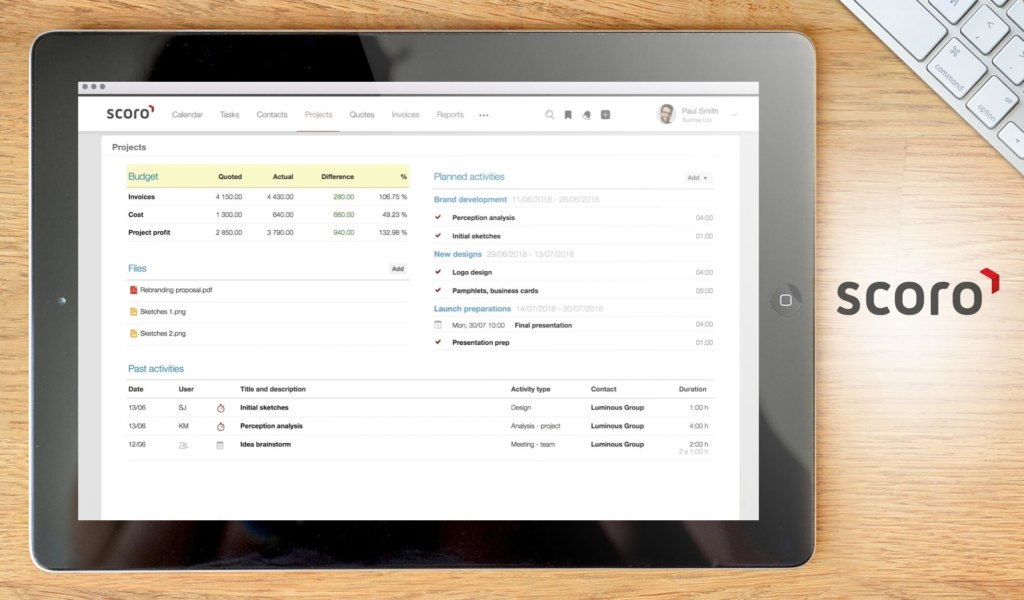
Scoro is another popular comprehensive cloud-based ERP platform used by SMBs to accomplish their jobs more quickly and effectively. Packed with robust resource management tools, this solution helps SMBs and large enterprises in most if not all of their operational and management tasks. Users can control all its features and functionalities through a central hub, be it CRM and quoting, >work scheduling and tracking, reporting and dashboard, or financial management.
Scoro helps businesses empower teams to achieve seamless collaboration, generate insightful reports, and more efficiently manage finances, staff schedules, customer relations, and other key business workflows. Aside from providing a unified view of your business, this ERP is also highly customizable, mobile-friendly, and can readily integrate with more than 1,000 third-party apps using Zapier.
What is unique about Scoro?
- A simplified approach using one platform. Scoro is indispensable in averting issues inherent when businesses use diverse types of applications. Problems arise when even a single department or unit uses multiple apps to complete a process or documentation. Because Scoro uses a unified approach with high integration possibilities, this common business issue is not only prevented but also allows for time and cost savings.
- Single focus and control. This platform enables businesses to gain total control of their systems and processes. This is realized because it provides users with a precise real-time view of the asset and time allocations of the business in its various units.
- Extensive reporting and tracking capabilities. Scoro offers businesses robust analytics and reporting capabilities, which allow companies to make solid data-based decisions. Among others, this application can generate detailed financial reports, real-time project status, summaries of billable and non-billable jobs, and KPIs.
- Integrate with your favorite apps. Scoro has a robust API that enables users to virtually integrate with almost any type of application. It also supports over a thousand integrations with the existing tools you and your team are already using, including calendar apps like Outlook and iCal, cloud/online storage sites like Dropbox, email managers like MailChimp, and financial apps like XERO.
- Highly customizable to suit your needs. Scoro can be customized based on the preferences of individual users, which helps boost higher productivity since users will be working in an environment he/she has designed. Users can configure various components of the app like the type of products, statuses, and even add custom fields.
Detailed Scoro Review
7. Kechie ERP
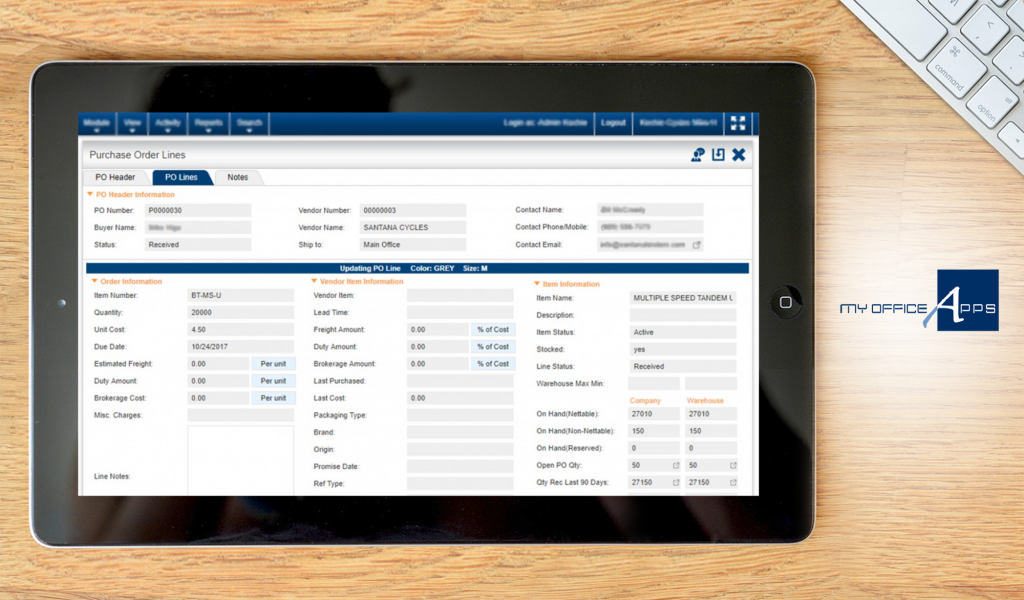
Kechie ERP is one of the best ERP solutions for small businesses, startups, or large enterprises. It covers a wide range of ERP functionalities, from CRM and customer support to financial planning, inventory management, procurement, and warehouse management. It also comes with a manufacturing module that helps you plan production, schedule raw material purchase and delivery, and monitor inventory levels.
In addition, Kechie ERP offers powerful financial management features to streamline and control all aspects of your organization’s finances. The software helps you manage your accounts payables and receivables in the same platform where you can manage your assets and gain accurate reports of your financial performance. This helps you simplify tasks related to your financials, which results in improved efficiency and reduction of processing costs.
What is unique about Kechie ERP?
- Automation tools. Kechie ERP offers powerful automation features to streamline your business processes. From CRM to inventory management and order fulfillment, the software provides a number of automation tools to speed up your workflows.
- Greater visibility. With Kechie ERP’s supply chain management and logistics module, you can have better visibility and a complete outlook on your shipments and logistical performance. The software also allows you to optimize lead times, client expectations, and satisfaction.
- Order management. Kechie ERP provides the right tools you need for more efficient management of your sales orders. From sales quotation to sales order approval, invoicing, and fulfillment, you can rely on the software’s order management module.
- Manage multiple warehouses. Whether you’re managing single or multiple warehouse locations, Kechie ERP has the essential warehouse management tools for your needs. It allows you to connect all your warehouses, enabling you to instantly access inventory, fulfillment, and shipping data.
- Solve customer requests. With its service center module, Kechie ERP allows you to better manage Return Merchandise Authorization (RMA) requests and customer returns. It provides real-time status of RMAs as well as better visibility to the status of returned merchandise.
Detailed Kechie Review
8. Tipalti

This cloud-based software solution offers one of the most comprehensive accounts payable platforms for businesses of any size and industry. Tipalti is packed with powerful features designed to automate end-to-end payment processing of local and global transactions, procurement management, payment reconciliation, and even global tax and VAT compliance.
Some of Tipalti’s notable functions cover invoice management and bill processing, which automates invoice capture, advanced OCR and data extraction, and matching purchase orders and receipts. Tipalti’s AI-powered system also automatically routes transactions to appropriate departments, which speeds up the processing of approvals. Furthermore, you can also schedule batches invoices for more efficient payment processing.
What is unique about Tipalti?
- Custom payables automation. Every business is unique and each has its own way of handling and processing payment-related transactions. What makes Tipalti an ideal fit is it can be tailored according to the billings and invoicing needs and requirements of a business regardless of its size and industry.
- Self-billing module. This function allows businesses to automatically generate self-bill invoices that comply with government tax requirements of different countries. All records are also safely uploaded through Tipalti AP Hub, as well as other API or FTP.
- Proprietary fraud detection. Tipalti Detect℠ is Tipalti’s answer to fraud risks. This feature helps businesses detect potentially fraudulent transactions in Tipalti systems and as early as the onboarding process. This gives you plenty of time to conduct necessary investigations before completing the payment process.
9. Brahmin Solutions
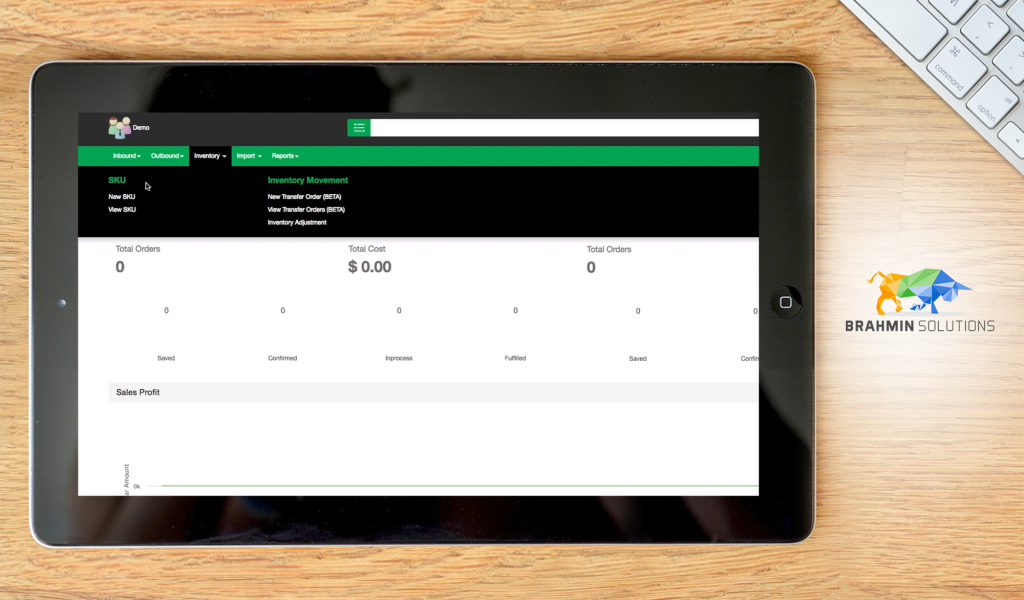
Brahmin Solutions is an inventory management software that provides a single platform for your business’ multichannel inventory management, sales and order fulfillment, warehouse management, and manufacturing needs. This software solution allows you to monitor and manage your inventory across different ecommerce platforms and even the inventory of your physical stores. You can also avoid the long process of replenishing your stocks using Brahmin Solutions’ purchase order solution, which automates the partial order fulfillment and back ordering process.
Brahmin Solutions also provides customizable reporting tools to track your business performance. Using reporting features, you can generate sales reports by product, sales representative, sales channel, and more, in order for you to assess your business’ health and make data-driven decisions to address issues and identify growth opportunities.
In terms of third-party integration, Brahmin Solutions is compatible with marketplaces, ecommerce platforms, online payment gateways, accounting systems, EDI, and 3PL. Pricing starts at $199/month for a maximum of five users and 1,000 orders per month.
What is unique about Brahmin Solutions?
- Business-specific solution. This software is created specifically for manufacturing, wholesale, and retail businesses to help their teams manage end-to-end operations.
- Fast implementation. Brahmin Solutions can be implemented on an average of 1-2 weeks and sometimes a few days.
- Dedicated expert guidance. Brahmin Solutions offer consultation with business experts.
Detailed Brahmin Solutions Review
10. Odoo
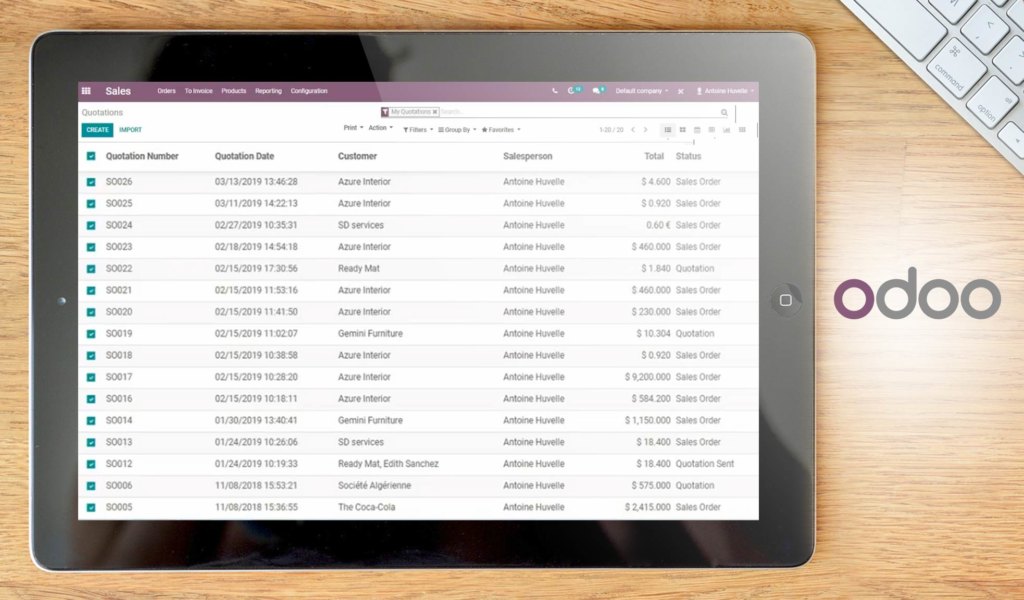
Odoo is not just your standard management software as it covers essential sales and project management in a single platform, and enriches them with a variety of MRP, POS, and e-commerce functions to deliver a universal solution for businesses manage of all types. The system goes a step further by integrating your entire sales channels and combining them with powerful inventory management functionality to drive your business forward.
Odoo is a cloud-based platform that comes with a free basic plan for 1 app and for up to 50 users. Its full-featured package covers all the apps you may need to handle various business functions and processes. Odoo has an open-source model which allows developers and business experts to build hundreds of apps to expand the platform’s usability and scale it to your business operations.
What is unique about Odoo?
- Universal solution. Odoo covers all sorts of business operations, from project management, CRM, and HR to inventory control and omnichannel sales. It replaces the multiple applications you’re using to manage your sales process while delivering streamlined, easy-to-manage interfaces.
- Highly modular. There are over 1000 modules to start with, and the user is free to add more while using it, being an open-source platform. As integrated as it is, functionality or benefits are compromised regardless of the app you’re using to cover your business processes.
- Lower TCO. The total cost of ownership is reduced with Odoo since you have a modern, integrated, and regularly updated tool that can easily replace the rest of your apps from day one. You can realize improved and timely delivery, lower inventory and administrative costs, accurate reporting, and reduction of cycle times.
- Free plan and no-cost lifetime package. It’s got a basic free plan and a setup to meet the requirements of any type of business. Moreover, the system’s flexibility allows you to tailor it even to your most specific needs, and to keep pace with the alterations in your business scenario.
Detailed Odoo Review
11. Sage Intacct
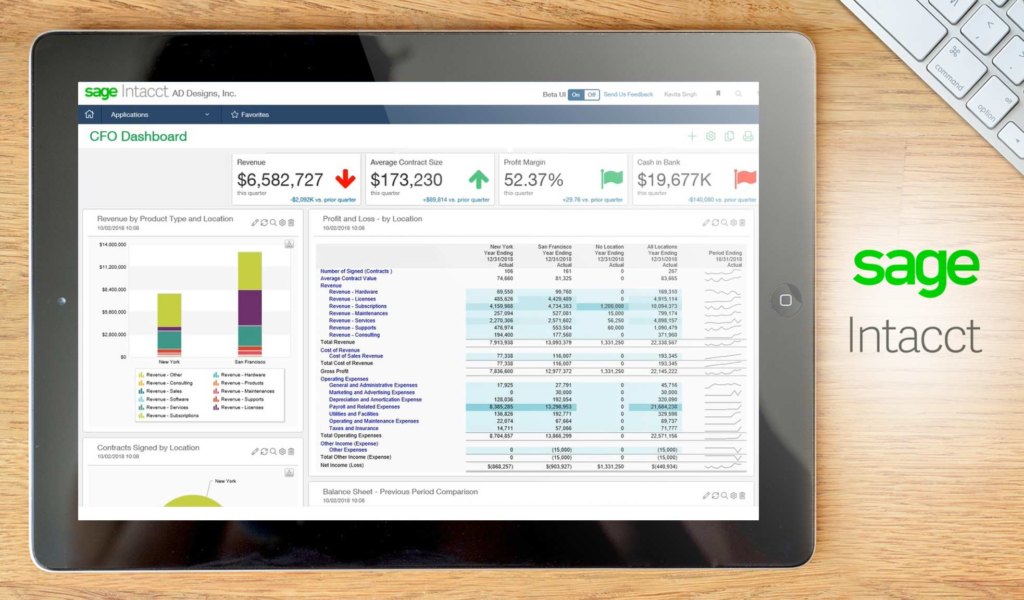
Sage Intacctis cloud-based financial management software created for businesses looking for enterprise-level solutions for their day-to-day operations. Sage Intacct gives you robust automation to handle your most critical financial operations while giving you complete visibility over your business performance in real time. You can tailor the system to your business by configuring workflows, screens, and preferences, all without complicated coding.
Thanks to the software’s technology, you can eliminate the traditional usage of spreadsheets. Due to its reliability and extensive accounting features, Intacct is recognized by AICPA as its top provider of financial-related applications for CPAs. The advanced financial platform allows you to add modules for multi-entity management, project accounting, time and expense management, contract revenue management, subscription billing, sales and use tax, check delivery service, and inventory management. It’s an all-around financial solution designed to increase efficiency, boost team productivity, and move your business forward.
Detailed Sage Intacct Review
What is unique about Sage Intacct?
- Solution for finance professionals. Sage Intacct is recognized by the American Institute of CPAs. This reputation and standing make it a solid platform for accounting and finance professionals.
- Scalable system. Aside from its key finance features, you can add on other modules to handle a variety of advanced accounting and management functions to suit your business requirements.
- Wide range of core accounting capabilities. A good ERP system needs first and foremost a robust accounting capability. Sage Intacct’s core functionality is anchored on its powerful accounting features that can streamline processes for transactions, general ledger, balance sheets, financial reports, revenues, costs, margins, sales, tax, inventory, regulatory compliance and more.
- Built-in and customizable reports. Sage Intacct comes with built-in report templates so you can easily generate reports and presentations, analyze performance, and track sales. The software contains numerous basic graphs, dashboards, and charts, which are relevant to many basic financial reports.
- Safe and fast payment processing. The platform is designed to facilitate credit card and bills payment, and works closely with e-commerce websites, especially when it comes to online purchases and services by streamlining the processes and providing a secure platform.
- Clean and simple interface. The default dashboard is similar to that of other accounting software, making it easy to use. Likewise, the dashboard can be customized with shortcut functions and can display only commonly used applications.
12. SYSPRO
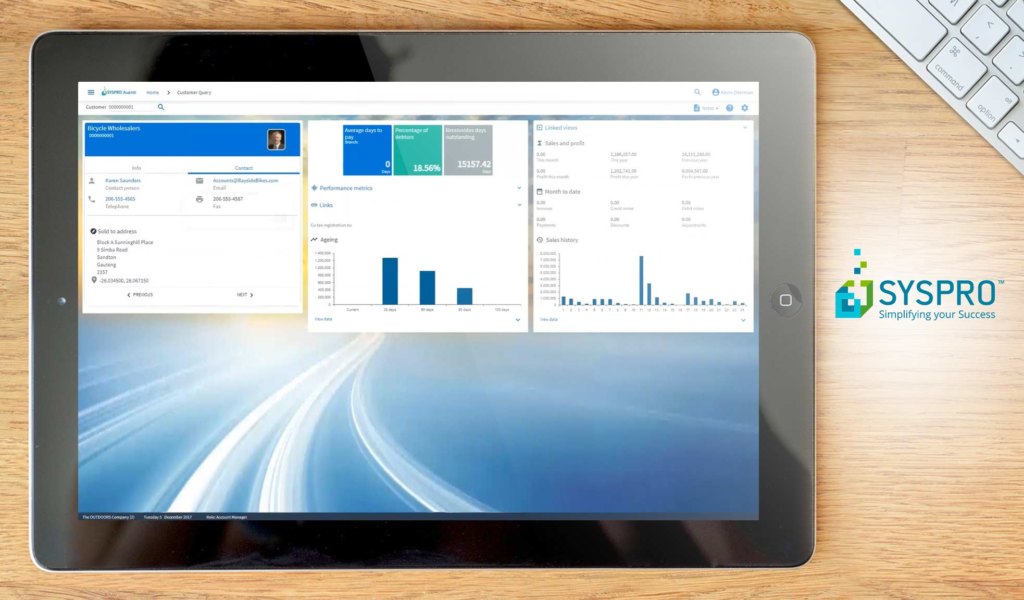
SYSPRO is an ERP platform designed mainly for use of manufacturing and logistics businesses. This application can handle virtually all manufacturing and logistics processes and is comparable with NetSuite ERP in terms of having comprehensiveness of features and capabilities. Another aspect that separates this platform from other leading ERP vendors is that it spearheads in the area of machine learning and AI to optimize reporting and analytics to better arrive at more sound and timely business decisions.
SYSPRO offers a wide array of robust tools for efficient document management, supply chain planning, auditing solutions, etc., which eliminates the need for any other additional apps aside from those you already use. And to ensure that you continue using your favorite third-party applications, it also has extensive API capabilities.
Detailed SYSPRO Review
What is unique about SYSPRO?
- Efficient planning and scheduling tools. Planning and scheduling modules are integrated into the system to empower manufacturers to quickly create and share reliable and accurate production plans. These schedules take into consideration even production constraints related to materials, machines, people, and time, and are therefore considered to be a reliable picture of the company’s production capacity.
- Robust fraud detection and compliance tools. This platform has bank-grade security features to ensure that any potential issues and internal/external threats are quickly neutralized. It also has built-in compliance tools to facilitate adherence to industry regulations and government laws.
- Workforce management. SYSPRO also specializes in helping businesses better manage their employees as it makes it achievable to gather and categorize data, monitor activities in actual time, assess staff performance, and automatically and proactively to important concerns.
- Compact management solution for your business. Businesses will be empowered with a robust, unified toolkit that can efficiently control demand-based MRP and operational costs, as well as manage sales, manufacturing, inventory, risk and compliance, finances, distribution, and other mission-critical processes.
- Designed for manufacturing and distribution industries. The features and capabilities of this platform were designed to be used specifically by manufacturing and logistics firms, including food and beverage distributors, automakers, electronics, packaging companies, industrial machinery producers, metal fabricators, plastic and rubber manufacturers, etc.
13. Oracle ERP Cloud
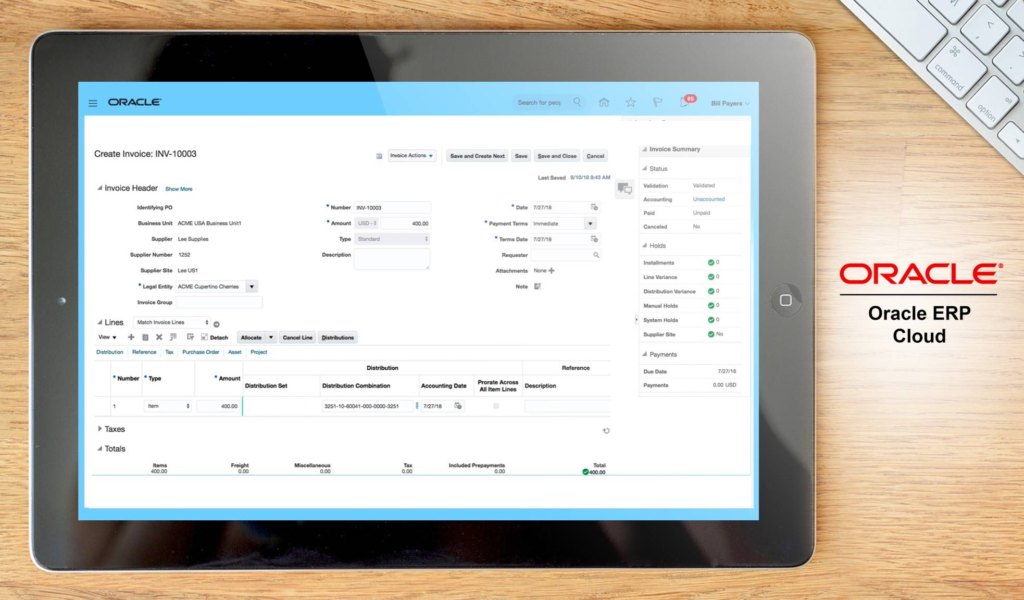
Oracle ERP Cloud is an online ERP platform packed with built-in industry standards and key best practices for helping businesses of any size successfully streamline their business operations. This comprehensive ERP system offers the needed user-friendliness and scalability to allow businesses to readily automate and manage their core business components, including product lifecycle, governance and compliance, project planning, reporting and analytics, financials, and procurement. At the heart of Oracle ERP Cloud are robust financial functionalities that offer advanced reporting and top-tier data analytics, which facilitates better and more timely business decision-making.
Detailed Oracle ERP Cloud Review
What is unique about Oracle ERP Cloud?
- Project Management Cloud. Oracle ERP’s Project Management Cloud provides modern project execution tools and methods that you can adopt as part of an Oracle Cloud Suite or deploy with existing solutions.
- Intelligent Procurement Cloud. Businesses use Oracle ERP’s procurement cloud tool to restructure their end-to-end processes using social collaboration and automation, while at the same time gaining better margins and more efficiently controlling expenses.
- Risk compliance and governance solutions. You can take advantage of its Oracle Risk Management feature that is packed with AI-powered strategies for automating sophisticated business analysis for data privacy compliance, segregation of duties, financial fraud prevention, and ERP role design.
- Insightful ERP Analytics. Backed by more than 40 years of solid experience in technological innovation, Oracle ERP Cloud offers industry-established ERP metrics, analytics, reports, user interface, and best practices to boost operational efficiencies and drive smart business systems.
14. SAP ERP
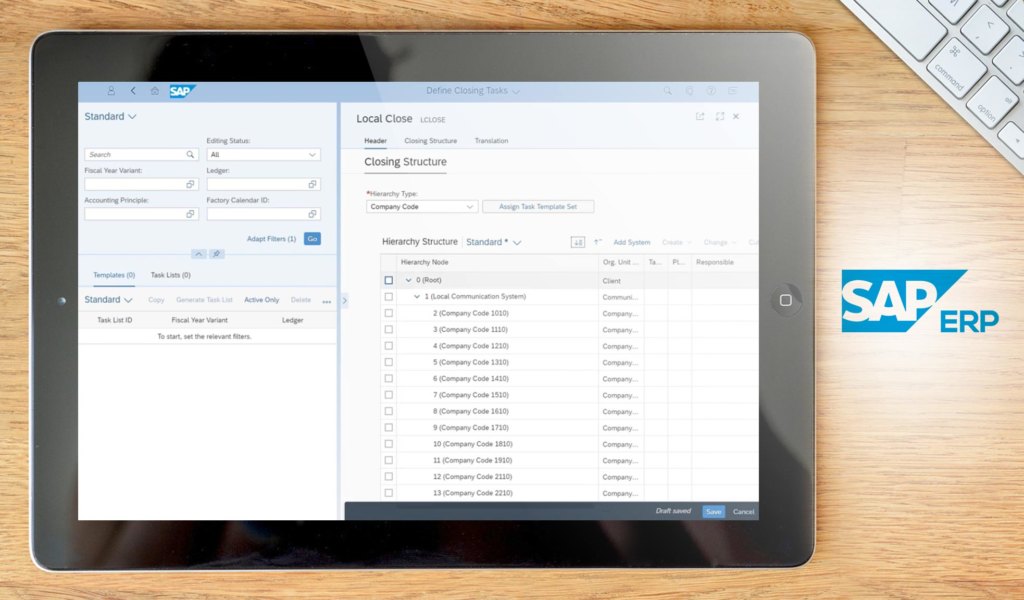
SAP ERP is an all-in-one enterprise resource planning suite that integrates an extensive array of business systems designed to help businesses achieve better operational management and productivity. From one of the pioneers of ERP applications, SAP ERP offers built-in tools for virtually every core process in any business operation, from product lifecycle management and CRM to financial management and analytics. It can be deployed on-premise and via the cloud and facilitates the elimination of information silos, automation of key business processes, and supports the seamless flow of real-time data across business units to empower stakeholders carry-out evidence-based decisions and enhance the bottom line.
Detailed SAP ERP Review
What is unique about SAP ERP?
- From procurement to payment. SAP ERP is designed to provide end-to-end support, starting from procurement to billing processes. This helps in bringing down operational costs.
- From product planning to launching. This platform helps businesses hasten their whole manufacturing processes, from product planning and design to development and completion.
- From product order to cash and beyond. SAP ERP offers robust support for all customer-related activities, including sales, delivery, after-sales, and even the handling of product returns and warranty.
- Essential HR and finance services. This solution provides solid features to streamline and improve your finance and HR processes, from new staff recruiting to employee succession and for every finance-related activity, including monitoring and compliance.
15. Microsoft Dynamics GP
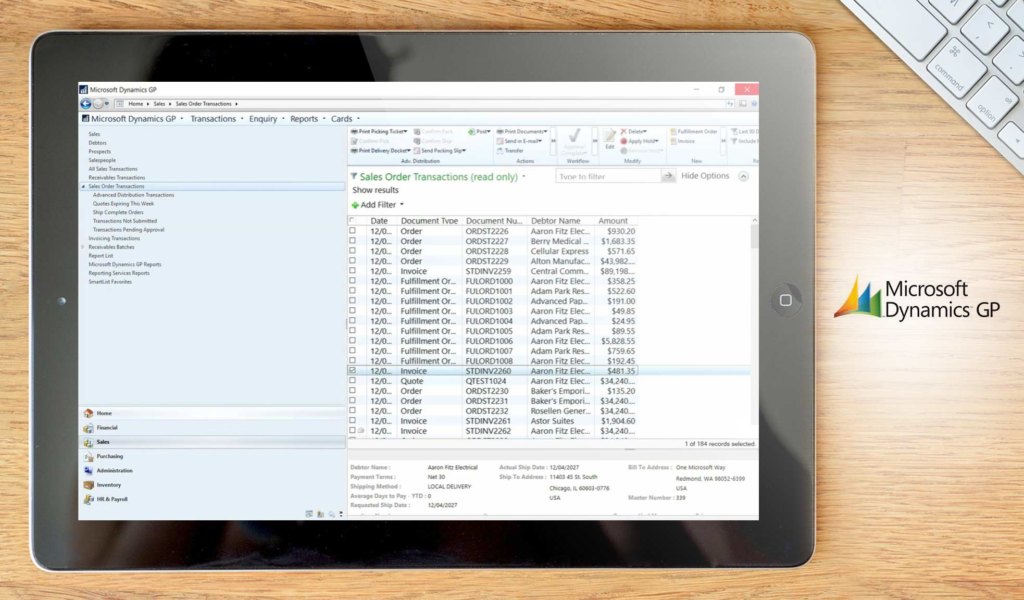
Microsoft Dynamics GP is an ERP solution with an extensive offering of functionalities and tools for businesses for more efficient handling of CRM, HR, supply chain, finance, and a whole lot more. From technology giant Microsoft, this ERP platform unifies all key practices and systems of a business and integrates all business information in an intuitive manner to allow an efficient workflow and a more systematic operation. Based on the robust configurations of SQL databases and MS Office apps, Microsoft Dynamics GP also provides smart reporting and business intelligence features to support sound business evaluation.
Detailed Microsoft Dynamics GP Review
What is unique about Microsoft Dynamics GP?
- Easy to learn and use. At the core of Microsoft Dynamics GP is simplicity and functionality, which is why it is designed with a clean and straightforward interface that allows users to readily access the various pages of the ERP and get things done faster. Users can only see what they can access, based on their security levels, thus removing clutter and enabling faster completion of tasks.
- RapidStart Services. This feature considerably speeds up business configuration in Dynamics GP. It also drives faster data migration from third-party apps into this solution. Dynamics GP’s RapidStart Services also decreases the needed time period to make this ERP up and running, including easy involvement with the appropriate staff and work teams as it is being deployed.
- Smartlist designer. This popular Dynamics GP tool enables users to optimize the business data necessary to support more efficient business decision-making. You can build practically hundreds of SmartLists into this ERP solution, which also be modified for customization purposes or when the need arises.
- Quick links generator. Quick Links generator. Users can create their own personalized quick links on the homepage of their Dynamics GP, both for the most frequently used windows inside their business websites and even for external sites.
Key ERP Trends to Consider
Before you go, here are some of the latest ERP trends to keep you updated on industry innovations and future directions. Indeed, technology and social media have been impacting the growth, development, and adoption of ERP tools for the last couple of years, and will likely continue in the near term.
- Cloud ERP. Cloud-hosted ERP platforms have introduced cheaper, faster, and more powerful solutions to the ERP suite, making it accessible to businesses of any size. The initial reluctance of ERP users to leverage cloud technology for their data and computing needs has slowly but steadily been overcome by the many advantages of the cloud, including reduced implementation and maintenance costs.
- Mobile ERP. With more customers now making purchases via mobile devices, this has pushed the need for sales teams and customer support staff to have real-time access to customer information wherever they may be. Businesses will look to more mobile ERP solutions for instant reports, data, and insights as well as to undertake core business processes while on the go.
- Social ERP. The rise of social media as a vital channel for customer engagement has added important functionality to modern ERP solutions. Social media packages are now being added to ERP systems to monitor, track and process social interaction data. Integrating social media with ERP has further expanded the capabilities of already comprehensive ERP platforms.
- Modular ERP. Businesses vary, and not every ERP user would want an ERP suite with hundreds of applications, some of which may not actually be utilized. Modular ERP has been an attractive come-on for non-enterprise users as it allows them to select and acquire only certain modules or feature applications to match the requirements of their business. Also, it lessens acquisition costs compared to getting a full suite.
Hopefully, you were able to narrow down your choices to 2-3 systems in our list of the best 15 ERP systems for your business. If you’re a start-up or an SMB owner, it’s also good to know that there are several ERP solutions designed specifically for you. And in case you’re ready to test some ERP tools in your operations, why not start with one of the best in the market at present? You only need to sign up for NetSuite ERP free demo to do that.




























Leave a comment!